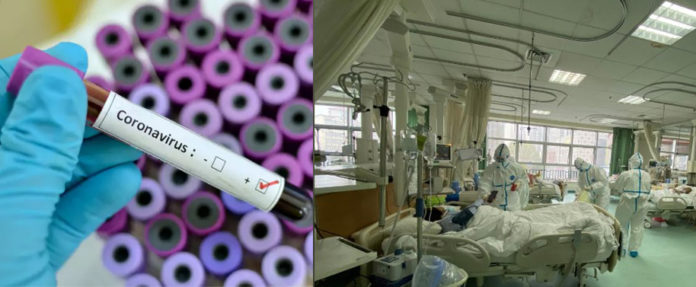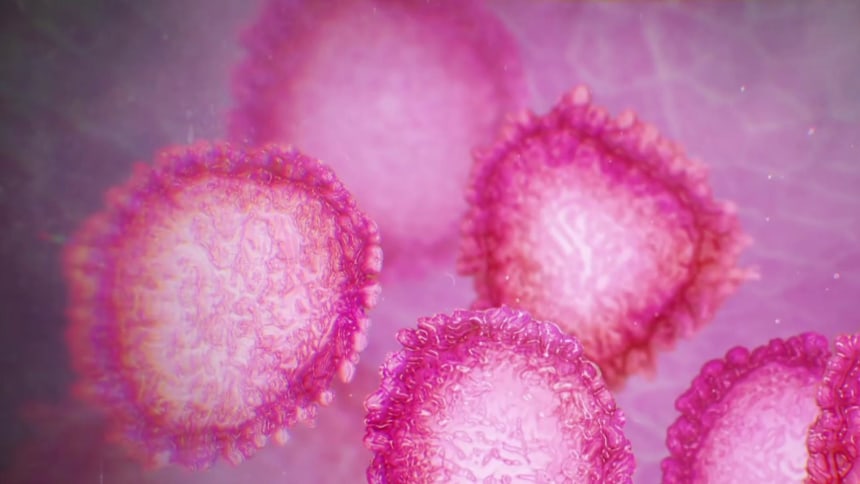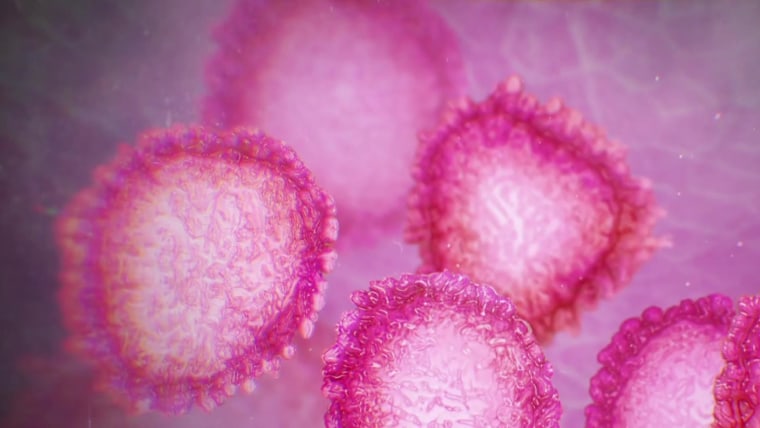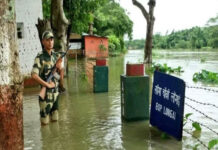About the virus and its origin
Coronaviruses (CoV) are a large family of viruses that cause illness ranging from the common cold to more severe diseases such as Middle East Respiratory Syndrome (MERS-CoV) and Severe Acute Respiratory Syndrome (SARS-CoV). A novel coronavirus (nCoV) is a new strain that has not been previously identified in humans.
Coronaviruses are zoonotic, meaning they are transmitted between animals and people. Detailed investigations found that SARS-CoV was transmitted from civet cats to humans and MERS-CoV from dromedary camels to humans. Several known coronaviruses are circulating in animals that have not yet infected humans.
Common signs of infection include respiratory symptoms, fever, cough, shortness of breath and breathing difficulties. In more severe cases, infection can cause pneumonia, severe acute respiratory syndrome, kidney failure and even death.
Standard recommendations to prevent infection spread include regular hand washing, covering mouth and nose when coughing and sneezing, thoroughly cooking meat and eggs. Avoid close contact with anyone showing symptoms of respiratory illness such as coughing and sneezing
 A newly identified respiratory virus that causes pneumonia was recently discovered in China.
A newly identified respiratory virus that causes pneumonia was recently discovered in China.
Cases of the virus, a type of coronavirus, have spread in China, and have also been reported in nearby countries in Asia, prompting U.S. health officials to start screening passengers coming from Wuhan to several airports in the United States. Two patients in the U.S. have been diagnosed with the disease so far, the Centers for Disease Control and Prevention said.
Here’s what to know about the coronavirus.
What is a coronavirus?
Coronaviruses are a group of viruses that can cause a range of symptoms including a runny nose, cough, sore throat and fever. Some are mild, such as the common cold, while others are more likely to lead to pneumonia. They’re usually spread through direct contact with an infected person.
The coronavirus gets its name from the crown-like spikes on its surface, according to the CDC. (Corona is Latin for crown.) Including the newly identified form of the virus, there are a total of seven coronaviruses that can infect humans, the CDC says. Other well-known coronaviruses include SARS and MERS.
Symptoms to watch for include fever, cough, shortness of breath, trouble breathing, body aches, sore throat or vomiting and diarrhea.
How does the new coronavirus spread?
Researchers are still learning precisely how the new virus spreads from person to person.
“While we do not know all of the mechanisms of spread of the epidemic so far, there is likely spread by droplets and contaminated surfaces, and possible airborne [spread], similar to SARS,” Dr. Mark Denison, a virologist at the Vanderbilt University Medical Center, said.
A person could also become infected through contact with the virus particles on a surface, though it’s unknown how long the new coronavirus can survive on surfaces outside of the body. If an infected person sneezes or coughs onto a surface, such as a countertop or doorknob, and another person touches that surface and then rubs his or her eyes or nose, for example, the latter may get sick.
The SARS virus was also spread through feces. Denison suggested the same spreading mechanism may be found in the new virus, but it’s too early to know for sure.
How long does it take for someone to get sick?
The new coronavirus’s incubation period — meaning the time it takes from a person being infected with the virus to when they start showing symptoms — is still unknown.
However, public health experts are working under the assumption that the incubation period is about 14 days. It’s unclear whether a person is contagious during the incubation period.
Does a face mask protect you from coronavirus?
Patients with the coronavirus wear a face mask to protect others around them, or, if the patient cannot wear a face mask, others should if they are in the same room together.
How can I prevent coronavirus?
One of the simplest prevention measures a person can take is proper hand-washing.
Washing hands with soap and water before eating, after using the bathroom, and after blowing your nose, coughing or sneezing, and before and after caring for a sick friend or a family member.
The most effective way to clean hands is to wet them with clean water, then apply soap and scrub for at least 20 seconds, before rinsing and drying with a clean towel.
Is there a coronavirus vaccine?
There is no specific treatment for the new virus, and no vaccine to prevent it. The National Institutes of Health confirmed Tuesday it’s in the “very preliminary stages” of research to develop a vaccine, but declined to provide details.
In addition, the drug company Regeneron is in the early stages of work on a potential treatment for this coronavirus. The company previously developed a similar treatment for Ebola.
India prepares to combat coronavirus threat
Doctors admitted that there is no treatment or vaccine available yet, but were optimistic that authorities will be able to contain the spread of the virus in the country.
“The Indian government is keeping a close watch on the situation, like it was done in cases of Zika and Ebola viruses. We were able to control them in the past so we have the potential to manage the situation now,” said Dr Jugal Kishore, Head of Department, Community Medicine, Safdarjung Hospital.
He added that there is no need to panic as mortality rate so far in Coronavirus cases is less than that in other deadly viruses. “However, precaution should be taken to check the spread. As it’s a new virus, we don’t know how this is going to behave in a country like India,” he said.
RML Hospital has been made the nodal centre for treating any Coronavirus patient. An isolation ward has been created there.
“Our team of doctors and nurses has been instructed to monitor patients. Also, the Centre is taking all preventive measures,” said Dr Minakshi Bhardwaj, Medical Superintendent, RML Hospital.
“All precautionary measures in terms of personal protection equipment for healthcare workers to prevent the spread of the disease while treating infected patients are in place,” said AIIMS Director Randeep Guleria.
Randeep Guleria said that if needed the hospital is ready to increase the capacity of the isolation ward. AIIMS has also reviewed preparedness with regard to management and infection prevention control facilities.
According to Dr Guleria, as of now, there is no definite treatment, antibiotics or vaccines available for combating the particular virus strain and only supportive treatment for pneumonia is given. One has to follow preventive medication strategies, he said.
A senior doctor at Delhi’s Lok Nayak Hospital told Mail Today that any patient complaining of cough and cold is being thoroughly examined.
 “Samples of all patients are being collected and sent to the Indian Council of Medical Research lab in Delhi or Pune’s National Institute of Virology. There is no delay in the process and all the samples are being tested by trained doctors,” he said.
“Samples of all patients are being collected and sent to the Indian Council of Medical Research lab in Delhi or Pune’s National Institute of Virology. There is no delay in the process and all the samples are being tested by trained doctors,” he said.
Doctors at Sir Ganga Ram Hospital told Mail Today that they are fully equipped to handle such cases. “For now the diagnosis and isolation of such patients are required. International airports are working on thermal screening of passengers,” said Dr Atul Kakar, Vice-Chairman, Department of Medicine, Sir Ganga Ram Hospital.
“The clinical features of Coronavirus are fever, cough, difficulty in breathing and a history of travel from Wuhan City, China, in the last 14 days before symptoms appeared,” said Dr Manoj Goel, Director and Head of Department (pulmonology and sleep medicine) at Fortis Memorial Research Institute (FMRI), Gurugram.
He said that coronavirus is most commonly spread from virus-infected persons to others through coughing, sneezing, close personal contact, touching an object or surface which has the virus on it.
Doctors said that people should use face masks, maintain good hygiene and avoid travelling in crowded places. Any kind of fever, cough and cold should be reported immediately to the nearest doctor.
 Some health experts, however, said that since India has many ports and airports, it gets difficult to identify disease-carrying people. “It may not be easy to diagnose Coronavirus as the symptoms resemble an ordinary cold and cough,” said an expert.
Some health experts, however, said that since India has many ports and airports, it gets difficult to identify disease-carrying people. “It may not be easy to diagnose Coronavirus as the symptoms resemble an ordinary cold and cough,” said an expert.
DELHI AIRPORT
Over 1,200 passengers coming from China are undergoing thermal scanning at Delhi’s IGI Airport daily, an official said.
“We have been monitoring passengers through CCTVs and additional video cameras. Apart from flyers coming from China, other passengers are also asked to go for a medical checkup if they are not feeling healthy,” said an official.
Riaz, an Indian garment transporter based in Hangzhou city in south-east China, told Mail Today, “There is scare in China after the outbreak of the deadly Coronavirus. Though the place where I live is far away from the epicentre. This trip was scheduled with my family and I am happy to be back home.”




















































